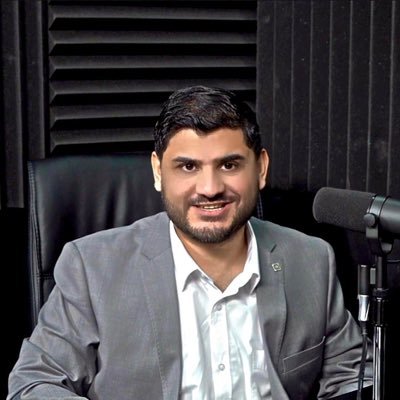🚨BREAKING: ISRAEL BOMB NEAR IRAN EMBASSY IN BEIRUT
The Spaces discussion revolves around the increasing tensions in the Middle East, particularly focusing on the conflict involving Israel and the Palestinian region. The participants discuss Israel's recent bombings in Beirut, near the Iranian embassy, and their broader geopolitical implications. They emphasize the humanitarian crisis in Gaza and Lebanon caused by these conflicts, criticizing Israel's actions and questioning the moral position of the Western governments that support Israel. There are also discussions on potential solutions and how global opinion is shifting against Israeli policies, with a particular focus on the influence and control exerted by Israel over Western nations. The talk delves into how Zionist ideologies and geopolitical strategies impact global peace and security, calling for international intervention and support for the oppressed regions.
Breaking News and Military Conflict
Israel Bombs Beirut
- Leman (Speaker 1) begins by sharing news of multiple bombings in Beirut, notably near the Iranian embassy. He recounts similar past incidents, such as the Damascus embassy bombing which led to significant retaliations.
- Speaker 2 and others stress the severity of the news and encourage listeners to spread awareness.
- Leman highlights the normalization of violence in the region, pointing out the psychological impact of repeated bombings on the people.
Blinken in the Middle East
- Speaker 6, presumably Kelesi, expresses skepticism about US Secretary of State Antony Blinken's recent statements in the Middle East, which are viewed as insincere and ineffective regarding hostage situations and regional peace.
- There’s criticism of the lack of genuine search efforts for hostages as the focus appears to be on military actions against Palestinian women and children.
International Law and Retaliation
Bombing of Embassies
- Leman and others explain the implications of bombing an embassy, equating it to an act of war against the nation represented by the embassy according to international law.
- Discussion includes comparisons to past incidents of bombing embassies, such as the Iranian embassy in Damascus, which resulted in military responses from Iran.
Local and Family Impact
Personal Accounts
- Brothers Hussain and Moffat, along with other individuals like Speaker 8, discuss the personal and historic significance of bombings in Lebanese areas like Yaron, emphasizing the deep familial and cultural impacts.
Targeting of Journalists
- Media entities like Al Mayadeen are targeted in the bombings, raising concerns about deliberate attacks on journalistic agencies to stifle coverage.
Perspectives on Global Politics
U.S. and Israeli Politics
- Speakers discuss the complex relationship between Israel and the U.S., with some arguing that Israel wields significant influence over American foreign policy.
- Chris (Speaker 10), in his extensive commentary, suggests that Israel acts as a proxy for broader Western geopolitical interests, particularly those of the U.S. and the UK.
Sectarian and National Divisions
- Conversations reflect the deep-seated divisions and perspectives within Middle Eastern communities, including intra-Arab and Jewish-Muslim dynamics.
- Sectarian tensions within the Muslim community regarding Iran's role in the region are also discussed.
Resistance and Ideological Conflict
Palestinian and Lebanese Resistance
- Speakers express solidarity with resistance movements like Hezbollah and criticize Israeli military tactics which are seen as attempts at ethnic cleansing.
- The resilience of communities in places like Gaza and South Lebanon is emphasized, with historical references to their resistance against Israeli aggression.
Geopolitical Alliances
- Discussion touches on Iran's strategic position in countering Israeli aggression, noting that the ideological commitment to the Palestinian cause is strong among Iranian leaders and their allies.
Future of Middle Eastern Conflict
Predictions and Speculations
- Speakers like Hassan debate the potential outcomes of ongoing conflicts, expressing pessimism about immediate changes given current geopolitical alignments.
- The role of major powers, including the possibility of American economic and military overreach, is speculated upon in terms of how it might impact future conflicts and regional stability.
Role of Public Opinion and Global Movements
- Simon and other contributors argue that shifting global perceptions and increased awareness through social media are key to challenging longstanding geopolitical dynamics.
- There's an acknowledgment of the power of grassroots movements and public opinion in potentially altering the current trajectory of Middle Eastern conflicts.
The discussions provide a multi-faceted view of the complex geopolitical landscape in the Middle East, highlighting personal stories, international relations, and the enduring nature of ideological conflicts.
